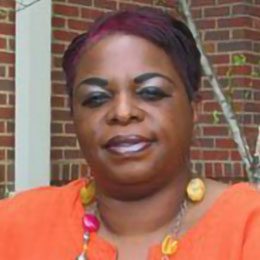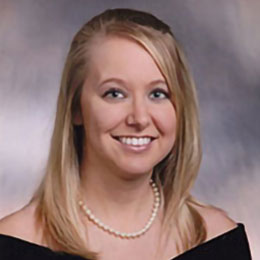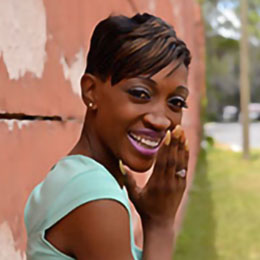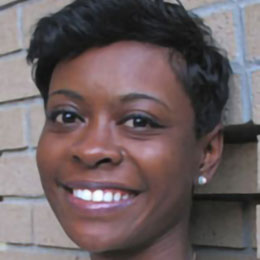
Clinical Mental Health Counseling
Request Information
Master of Arts in Clinical Mental Health Counseling
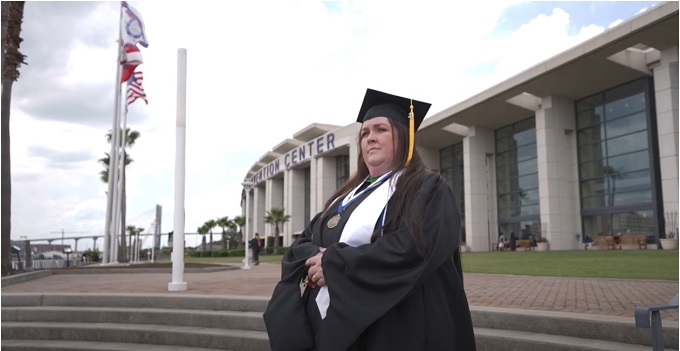
There are many individuals who need the care and guidance of a counselor to support them through hard times and to challenge unhelpful thought patterns. With a Master of Arts in Clinical Mental Health Counseling from South University, you can learn to become a compassionate, professional counselor to help those in need. The coursework for the master’s in counseling degree program focuses on learning through experience, and comprehensive studies of theories and principles, dynamic applications in the field, training in effective assessment and treatment practices, a thorough understanding of the significance of research in the field and competence in ethical, legal, and professional standards.
The Master of Arts in Clinical Mental Health Counseling is designed to prepare graduates to sit for licensure in their state and the opportunity to become certified as a National Certified Counselor by the National Board for Certified Counselors*.
* It is up to each student to review the national and state licensure requirements for licensure, as well as the eligibility criteria to sit for licensure exams. South University cannot guarantee each graduate will pass the required licensure examinations. Outside agencies control the requirements for taking and passing certification/licensing exams and are subject to change without notice to South University.
South University does not promise or guarantee employment.
South University, Richmond, and South University, Virginia Beach, are certified to operate in the Commonwealth of Virginia pursuant to Title 23, Chapter 21.1, §23-276.4 of the Code of Virginia by the State Council of Higher Education for Virginia (James Monroe Building, 101 North 14th St; Richmond, VA 23219; 804-225-2600; www.schev.edu).
Council for Accreditation of Counseling and Related Educational Programs
The Master of Arts (MA), Clinical Mental Health Counseling degree program at South University is accredited by the Council for Accreditation of Counseling and Related Educational Programs (CACREP), (Council for Accreditation of Counseling and Related Educational Programs, 1001 North Fairfax Street, Suite 510, Alexandria, VA 22314, phone (703) 535-5990.)
Admission Requirements
Procedure for Admission to the Master of Arts in Clinical Mental Health Counseling Program
Admissions criteria for the Master of Arts in Clinical Mental Health Counseling program are consistent with those required in other master's degree level programs at South University. As the admissions process also takes into consideration the characteristics deemed essential to becoming a clinical mental health counselor, material is also required which will enable a determination to be made of the applicant's personal integrity, maturity, interpersonal skills, and ability to communicate effectively. The criteria used in determining admission to the graduate program include:
- Completion of a bachelor's degree from an accredited institution.
- A grade point average of at least 2.7 (on an Admissions scale of 4.0) for the last 60 semester hours/90 quarter hours of coursework (including relevant graduate work), or, a bachelor's degree with an overall CGPA of 2.7, or, an earned graduate degree from an accredited institution with a CGPA of 3.0 or higher.
- A minimum score on a South University preapproved English language proficiency test is required for all applicants whose "first" language is not English as specified in the English Language Proficiency Policy.
- Interview with the Clinical Mental Health Counseling department chair/program director or designated faculty member.
- Approval of the campus program admissions committee.
- Completion of an application for admission.
- Submission of a personal/professional statement addressing the applicant's interest in counseling, professional goals, along with a self-appraisal of academic and professional qualifications.
- Submission (within 5 weeks* of class start dates) of official transcripts from all postsecondary institutions attended.
- Current résumé (or career summary).
- Background Check
All required admissions documentation and criteria will be reviewed and evaluated. Applicants will be notified regarding acceptance. Applicants should review the published general graduate requirements listed in the South University catalog. Students who are citizens of countries other than the United States should also refer to the section in the South University catalog entitled International Student Admissions Policy.
*Effective August 14, 2023 – Students beginning classes at Online Programs will have five weeks to submit acceptable documentation.
Provisional Admission
Applicants with an undergraduate degree CGPA of less than a 2.70, but not lower than 2.30, for the last 60 semester hours/90 quarter hours of coursework (including relevant graduate work), or, a bachelor's degree with an overall CGPA of 2.70, but not lower than 2.3, or, an earned graduate degree from an accredited institution with a CGPA of less than 3.00, but not lower than a 2.70, will be considered for provisional admission. Students who do not attain a 3.00 GPA in the first quarter will be dismissed. Students cannot appeal the dismissal from the university as a result of failure to meet the conditions of provisional admission.
The applicant will need to provide evidence of academic and professional potential demonstrated by career and/or personal accomplishments indicated in a personal statement of academic and professional goals, a career resume or curriculum vita, and two letters of academic and/or professional recommendations. The Program Chair in consultation with the Campus Director & Dean of Academic Affairs and Operations and College Dean or designee must approve exceptions. The College Dean serves as the final decision maker. Students are required to complete the provisional admissions form for entry as a provisional admission student.
For additional admissions information please see the admissions section here.
Course Requirements
Curriculum for Columbia; Richmond; Savannah and Virginia Beach campuses only
Notes:
*Students wishing to move to North Carolina will be able take additional .5 seminar courses to fulfill the State of North Carolina requirements. Students taking these additional courses must follow the Coursework Taken Outside a Student's Degree Program policy found in the Academic Affairs Section of the Academic Catalog.
- CNS6006 Counseling Theory Seminar 0.5 credit hour
- CNS6056 Lifespan Development Seminar 0.5 credit hour
- CNS6317 Professional and Ethical Issues Seminar 0.5 credit hour
- CNS6504 Group Dynamics Seminar 0.5 credit hour
- CNS6532 Research and Evaluation Seminar 0.5 credit hour
- CNS6538 Clinical Mental Health Appraisal Seminar 0.5 credit hour
- CNS6568 Multicultural Foundations Seminar 0.5 credit hour
- CNS6605 Lifestyle and Career Development Seminar 0.5 credit hour
Curriculum for Columbia; Richmond; Savannah and Virginia Beach campuses only
Note(s):
*Students wishing to move to North Carolina will be able take additional .5 seminar courses to fulfill the State of North Carolina requirements. Students taking these additional courses must follow the Coursework Taken Outside a Student's Degree Program policy found in the Academic Affairs Section of the Academic Catalog.
- CNS6006 Counseling Theory Seminar 0.5 credit hour
- CNS6056 Lifespan Development Seminar 0.5 credit hour
- CNS6317 Professional and Ethical Issues Seminar 0.5 credit hour
- CNS6504 Group Dynamics Seminar 0.5 credit hour
- CNS6532 Research and Evaluation Seminar 0.5 credit hour
- CNS6538 Clinical Mental Health Appraisal Seminar0.5 credit hour
- CNS6568 Multicultural Foundations Seminar 0.5 credit hour
- CNS6605 Lifestyle and Career Development Seminar 0.5 credit hour
Mission, Goals & Outcomes
Offered at Columbia, Richmond, Savannah, and Virginia Beach.
Program Overview
The South University Master of Arts degree program in Clinical Mental Health Counseling is intended to meet the local and regional need for qualified counselors. The Master of Arts in Clinical Mental Health Counseling is designed to provide advanced and broad training for South University graduate students regarding theories, principles, and dynamic applications in the field. Students develop the skills necessary to engage in effective assessment and treatment practices, achieve competence for ethical, legal, and professional issues, and understand the significance and utility of research to the field. Faculty members are dedicated to maintaining high teaching standards, developing intellectual curiosity, advancing critical thinking, and engaging in service to the University, community, and profession.
The primary goals of the program are as follows:
- Promote the development of broad and comprehensive knowledge of the field of Clinical Mental Health Counseling.
- Promote critical/analytical thinking regarding concepts and applications in the field.
- Promote a thorough understanding of mental health assessment and treatment.
- Raise awareness of professionalism and issues impacting the profession.
The program is designed to provide an opportunity for its graduates to achieve initial eligibility criteria to become licensed in their state and certified as a National Certified Counselor (NCC) by the National Board for Certified Counselors (NBCC). The length of the Clinical Mental Health Counseling program varies in accord with the licensing requirements of the states in which the program is offered. As a result, the program may not meet the licensing requirements of all states. The student should contact the licensing board in the state in which they anticipate seeking licensure to determine the appropriate program. By way of illustration, the track offered at the Columbia campus is 91 credit hours and is designed to meet current state requirements for counseling programs in South Carolina. The program is 91 credit hours at the Austin, Richmond, Savannah and Virginia Beach campuses, which is designed to meet current licensure requirements for counseling programs in Texas, Georgia and Virginia. The state of Florida offers licensure for Counselors in Mental Health Counseling and also requires extra classes in Human Sexuality and Treatment of Substances Abuse. Therefore, the track offered at the West Palm Beach campus is 95 credit hours, which is designed to meet current state licensure requirements. After becoming licensed as a Mental Health Counselor in Florida for three years, dual licensure can be pursued through attaining a License as a Marriage and Family Therapist by taking the LMFT state exam.
The delivery structure of the program provides the opportunity for students who wish to balance the rigors of work and home while pursuing their master's degree. Although delivery will vary by campus location, classes generally meet during the week in the evenings and Saturdays as needed. The program is designed for students to complete the curriculum in 10 quarters (the program is offered in 8 quarters, but the majority of students complete in 10 quarters). Each quarter, classes will be held on a weekly basis for a 10 week period with the 11th week designated for final exams.
Students who enroll in the program will be taught via two primary modes of instruction. The majority of the program will involve didactic and experiential classroom instruction. The second mode of instruction will focus on supervised field experiences. Students will be placed in actual counseling settings in the community and will practice counseling under the auspices of an onsite supervisor. Students in field placements will also receive weekly individual and group supervision from qualified faculty supervisors.
The objectives of the South University Clinical Mental Health Counseling program are to recruit eligible students from all areas and provide fair and equitable admissions criteria; make available a variety of instructional models and resources to provide the student with the most effective learning arrangements and to provide appropriate learning opportunities for counseling students that will prepare them to perform their expected competencies in an ethical, legal, safe, and effective manner upon graduation; prepare counseling students to communicate effectively; instill the importance and value of continued education and involvement in appropriate professional and community affairs after graduation; and encourage the counseling students to recognize their own strengths and limitations.
Program Student Learning Outcomes
Graduates will be able to:
- Professional Counseling Orientation and Ethical Practice: Demonstrate knowledge and application of all aspects of professional functioning, to include ethical standards, legal implications, advocacy and social justice, counselor roles, and professional credentialing.
- Social and Cultural Diversity: Demonstrate the ability to apply multicultural research and core theory to issues and relationships in the context of culturally competent counseling.
- Human Growth and Development Through the Lifespan: Apply research and core theory to the needs of diverse individuals across the lifespan, to include atypical personality and neurological development, addictive disorders, family and social relationships, and crisis response.
- Lifestyle and Career Development: Demonstrate implementation of research and core theory related to the processes of decision-making in career development and planning in the context of the psychology of work.
- Counseling and the Helping Relationship: Demonstrate knowledge and skill application of the major theories of change, consultation practices, diagnostic impressions, and evidence-based interventions to a diverse clientele for the delivery of effective and ethical treatment.
- Group Dynamics and Group Work: Apply culturally appropriate group skills, techniques, and theory-based interventions in the context of group counseling dynamics while exploring effective facilitation styles.
- Assessment and Appraisal: Analyze historical and current testing and assessment methods for implementing ethical and accurate appraisal of diverse clients by individual or group methods.
- Research and Program Evaluation: Apply needs assessment, program evaluation, and research methods to ethical and effective practice and to add to the body of literature in the counseling profession.
Courses are taught according to the matriculation sequences provided by each campus and at the discretion of the school. Courses must be attempted in the curriculum sequence as defined by each campus. Curriculum content and sequence are subject to change with notification.
Core Faculty
Richmond Campus Core Faculty
Aimee Brickner, Ph.D., LPC, Program Director
Dr. Brickner is the Program Director for Clinical Mental Health Counseling at South University-Richmond. She has a M.A. in Interpersonal Communication from Miami University (OH), an Ed.S in Clinical Mental Health Counseling from James Madison University, and a Ph.D. in Counselor Education and Supervision from James Madison University. Dr. Brickner is a Licensed Professional Counselor (LPC) and provides outpatient counseling services at the Charlottesville Counseling Collective in Charlottesville, VA. Her clinical population is diverse and includes many trauma survivors and children in the foster care system. Dr. Brickner’s research interests are in the areas of the intersectionality of trauma and supervision; the distribution of unseen work and emotional workloads in couple’s relationships; and how trauma manifests in different facets of the counseling relationship.
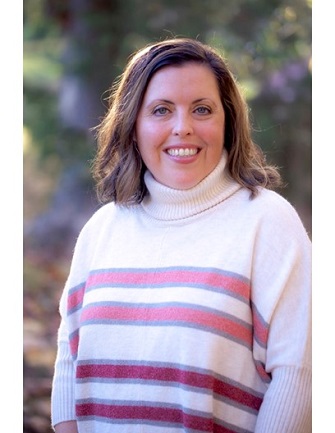
Faye Barner, Ph.D., LPC, CSOTP, LSATP , Clinical Coordinator
Faye Barner is a licensed professional counselor, licensed substance abuse treatment practitioner, and certified sex offender treatment provider. Dr. Barner has worked in the mental health field for over 20 years in both private and community-based settings. Her passions include working with and securing funding for disadvantage population programming as well as developing and implementing adolescent mentoring programs. She is also a professor in Counselor Education and Supervision. She serves as a mentor and clinical supervisor to a host of students and residents in counseling. Her specialty areas are working with adolescence substance use, sex offenders, and domestic violence survivors. Dr. Barner also provides workshops on mental health and substance use. Dr. Barner received her Doctor of Philosophy from Regent University in Counselor Education and Supervision.
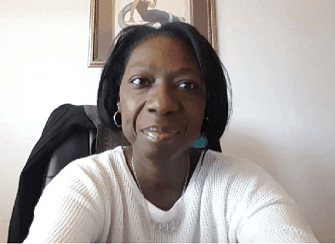
Carlton J. Henderson completed his undergraduate and doctoral studies at the prestigious Hampton University. Prior to beginning the doctoral program, he engaged in graduate study at the Virginia State University. His primary research interests include Black male identity development and mentoring.
Dr. Henderson’s professional experience is in community agency counseling, particularly working with underserved and minoritized youth and families. Dr. Henderson also has experience in state government through his work in human rights advocacy for those with mental and behavioral health needs.
Having realized the lack of Black male clinical representation in the counseling profession, Dr. Henderson began licensure supervision as a Resident in Counseling. He currently provides outpatient counseling services to adults and couples.
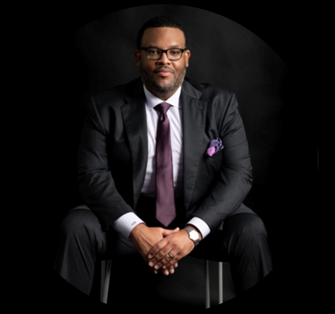
CMHC Program Guide
The Clinical Mental Health Counseling Program Guide contains information specific to students enrolled in the Master of Arts in Clinical Mental Health Counseling program at South University. It is the responsibility of all students to be knowledgeable about the policies, procedures, regulations and expectations contained within. If at any time there is a conflict between the Program Guide and the Academic Catalog, the Academic Catalog will take precedence.
This Guidebook has been prepared by the CMHC program. Information in it maybe be modified, supplemented or discontinued with or without notice.
To view the South University, Richmond Master of Arts in Clinical Mental Health Counseling (CMHC) Program Guide, click HERE.
Sample Syllabi
Master of Arts in Clinical Mental Health Counseling Course Syllabi Samples
The syllabi listed below represent the courses in the Clinical Mental Health Counseling Program. They are provided for informational purposes only and should not be interpreted as the “official” syllabus for the course.
CNS6051, Diagnostics of Psychopathology and Treatment
CNS6161, Counseling Techniques
CNS6313, Professional Orientation and Ethics
CNS6425, Clinical Mental Health Counseling
CNS6529, Research and Statistical Evaluation
CNS6535, Clinical Mental Health Appraisal I
CNS6565, Multicultural Foundations
CNS6602, Lifestyle and Career Development
CNS6709, Couples, Marital, and Family Dynamics
CNS6775, Counseling Administration, Advocacy, Supervision and Policy
CNS6901, Diagnosis and Treatment of Addictive Disorders
CNS7510, CNS7610, CNS7611, Internship IA, Internship IIA, Internship IIB
CNS7950, Child/Adolescent Psychopathology and Treatment
What's New
Latest News and Blogs

Mar 05, 2024
Exploring Physician Assistant Specialization Options
Physician Assistants are essential members of the healthcare team who work closely with physicians and other healthcare professionals to provide quality care to patients.

Apr 10, 2024
Alumni Spotlight: BBA Degree Gives Grad Versatility
After doing research online, Shanna-Kay found South University’s online programs. Because she already had a job, being able to take classes online on her schedule was valuable.

Apr 09, 2024
Savannah Scrubs Camp 2024
Discover what took place during the 2024 Scrubs Camp at the Savannah campus of South University.

Mar 26, 2024
How to Create and Lead a Strong Team
Learn tips for building and maintaining a team and fostering healthy collaboration and success.

Mar 21, 2024
Alumni Spotlight: Leveling up in MSN and DNP Programs
After completing the online MSN FNP program in 2019, Glynn Standifer decided to advance her education further and enrolled in our Doctor of Nursing Practice (DNP) program.

Mar 20, 2024
What is Health Informatics?
Health informatics sits at the intersection of healthcare, information technology, and data science.
Fill out the form and a representative will contact you today to better understand your academic goals plus answer any questions you may have.
Campuses offer flexible learning formats* including: on-campus, virtual instructions, and online courses.
*Clinical, practicum, and externship requirements exist in certain programs and require field experiences. Learning formats may not be flexible.
Success! Your request was submitted. We'll be in touch soon!
In the meantime, you can view some of our FAQs
If you want to talk to an admissions representative ASAP, please contact us at 1-888-444-3404
Outstanding Education for Remarkable Careers
We're committed to helping our graduates make an impact in their professional and personal lives. We applaud our alumni and the difference they make. Check out what some of our counseling and psychology graduates have to say.


